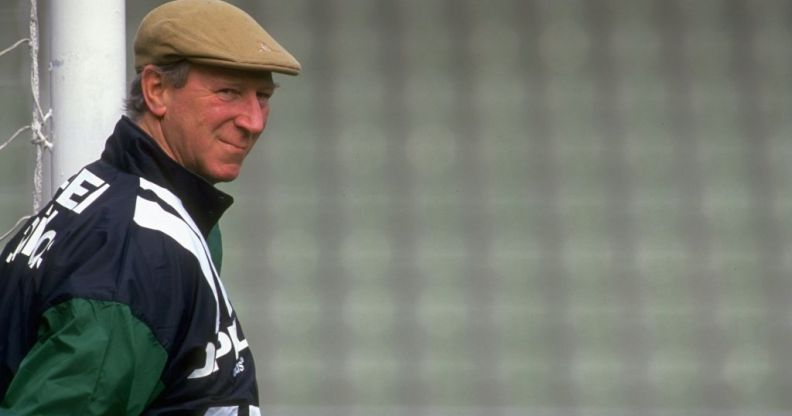Beloved footballer and 1966 World Cup winner Jack Charlton ‘pretended to be gay’ to trick men into buying him booze

Jack Charlton (Simon Bruty/Allsport)
Jack Charlton pretended to be gay in the 1950s to con men into buying him drinks when he couldn’t afford them.
The acclaimed English footballer and manager, who died last Friday (July 10), used to loiter in bars frequented by gay men during his time in the Army so he wouldn’t have to spend a penny all night.
The much-loved 1966 World Cup winner made the revelation in his 1997 autobiography, according to the Daily Star.
He claimed that he “exploited” gay men “to a degree that was criminal at times” between the years of 1953-1955 because he had no money.
Jack Charlton used to ‘go to a certain pub’ where gay men would buy him drinks all night.
Charlton secretly had two girlfriends – one in Slough and another in Maidenhead – at the same time.
The football legend used to trick gay men into buying him drinks while he was stationed in Windsor, Berkshire during his National Service.
“Windsor was full of gays,” he wrote in the autobiography.
We used to go to a certain pub where they would buy you drinks.
“Soldiers would go off with businessmen and we used to exploit this to a degree that was criminal at times. We used to go to a certain pub where they would buy you drinks.”
He continued: “They would become very friendly at closing time, but we’d just say: ‘Well, thanks very much, see you now.'”
The legendary football figure died last week.
Charlton died at the age of 85 last week. He had been diagnosed with lymphoma in the last year and was also living with dementia.
The legendary figure was was on the team that won the World Cup for England at Wembley in 1966. He went on to have a hugely successful career as a football manager in the Republic of Ireland, where he led the team to unprecedented success.
Tributes poured in for Charlton after news of his death broke on Saturday.
The England football team said they were “devastated” by the news, while the Football Association of Ireland said he “changed Irish football forever”.

